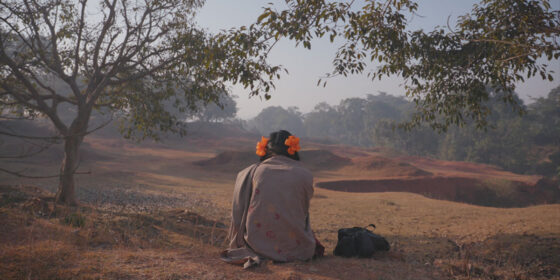TIFF 2022 | To Kill a Tiger (Nisha Pahuja, Canada)—TIFF Docs

By Brendan Boyle
Following the case of a 13-year-old girl who was raped by three men in Jharkand, India, To Kill a Tiger upsets all manner of clichés about narratives of sexual assault and criminal justice. Director Nisha Pahuja takes her camera into some unfriendly settings, and the villagers and local authorities direct a startling number of unsure, hostile glances toward her lens, including a scene of confrontation that threatens physical violence. Their protests against the possible sentences faced by the rapists result in some surreal admissions. An elderly woman suggests, by way of “compromise,” that the girl should marry her rapist (singular: two of the defendants, “logically,” must be innocent); more troublingly, the pleas for non-carceral solutions are heard only from the mouths of obstructionist male ward leaders and officials, who cannot help themselves from blaming the girl for her own assault in the next breath.
While the documentary takes the unusual step of naming and depicting the underage victim onscreen (with her and her family’s consent), the film’s structure follows its subject. The girl’s often peripheral presence underlines the fact that her father, Ranjit, must instead occupy the centre of the narrative because of his role within a highly traditional, patriarchal society. Over a timeframe of many months that has been compressed into a procedural narrative, Ranjit haltingly develops into a heroic figure due to his advocacy for his daughter. The film never considers this evolution inevitable, though: it gives space to the frustrations of other characters, like the women’s rights group who support the case, as Ranjit seems often at risk of buckling underneath the incredible emotional, material, social, and psychological pressures thrust upon him and his family. Pahuja’s film is a novelistic study of strength coexisting with self-doubt, of that inspirational byword, “perseverance”: a human frailty that endures.
Brendan Boyle

